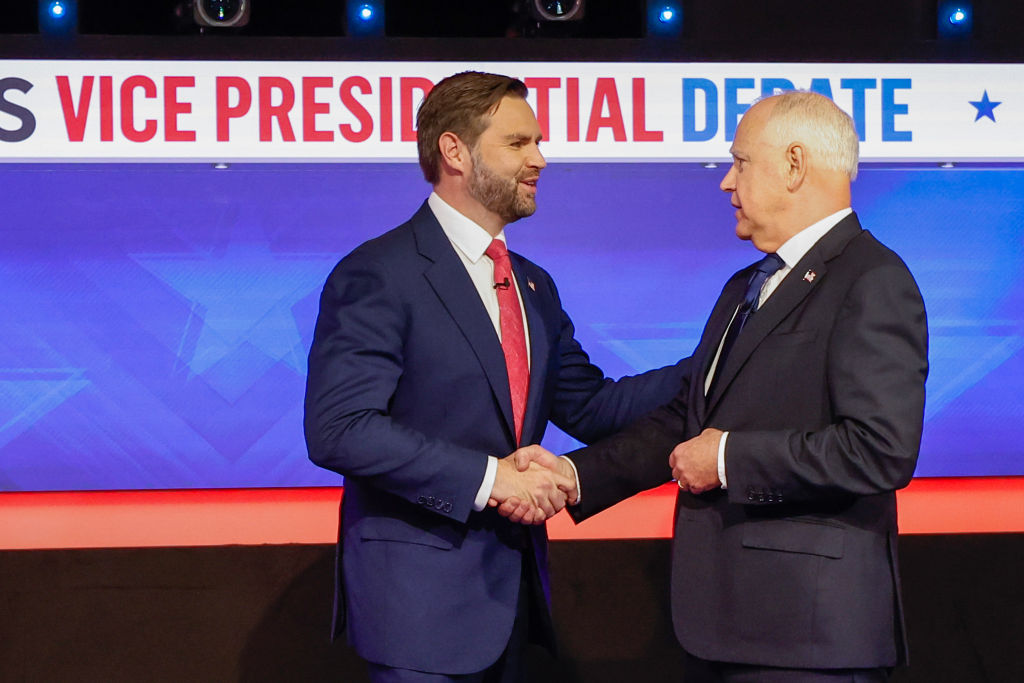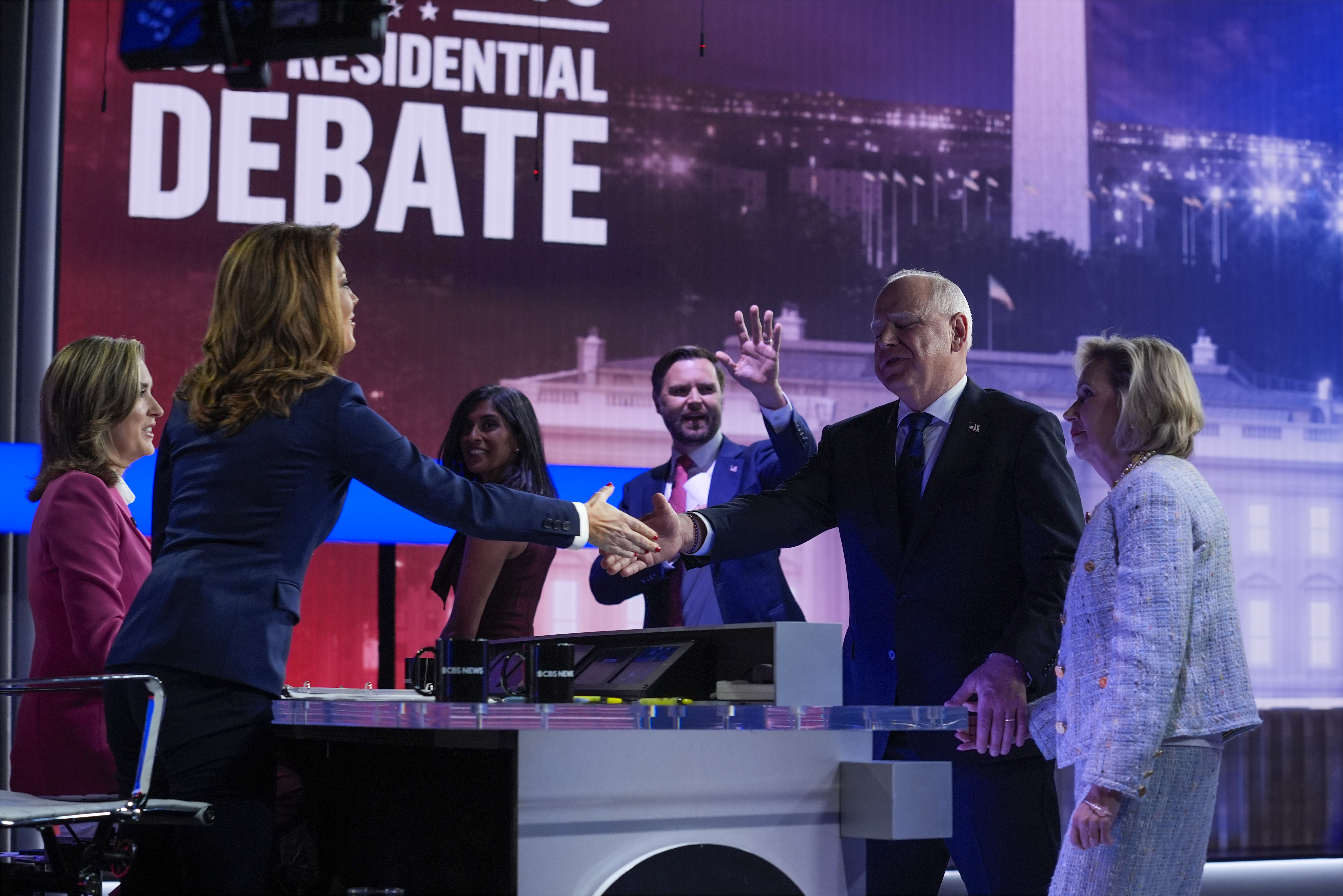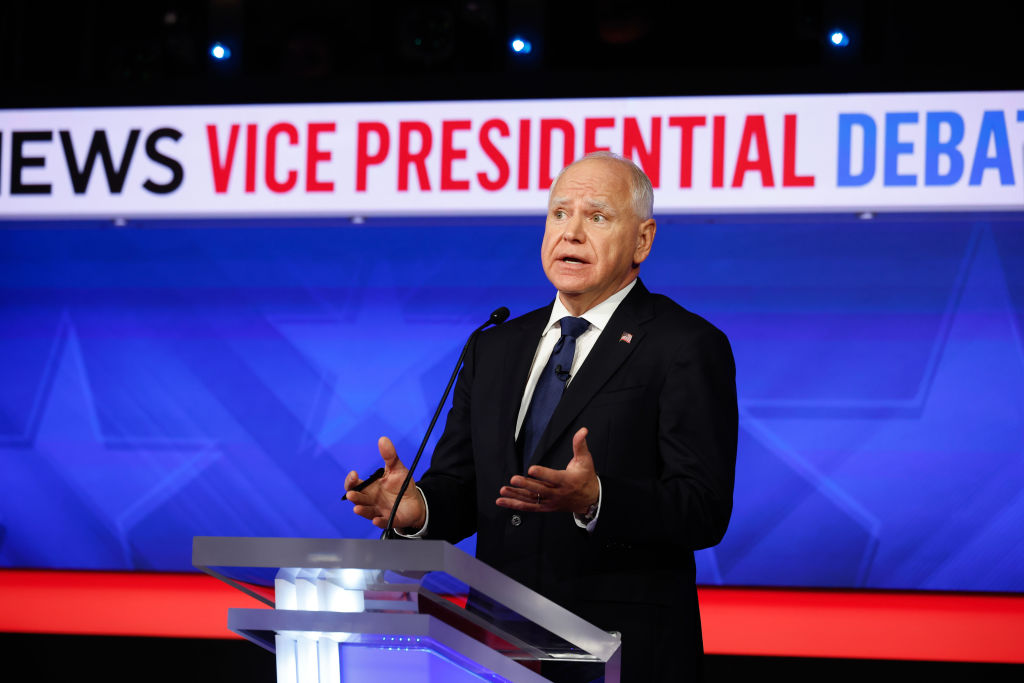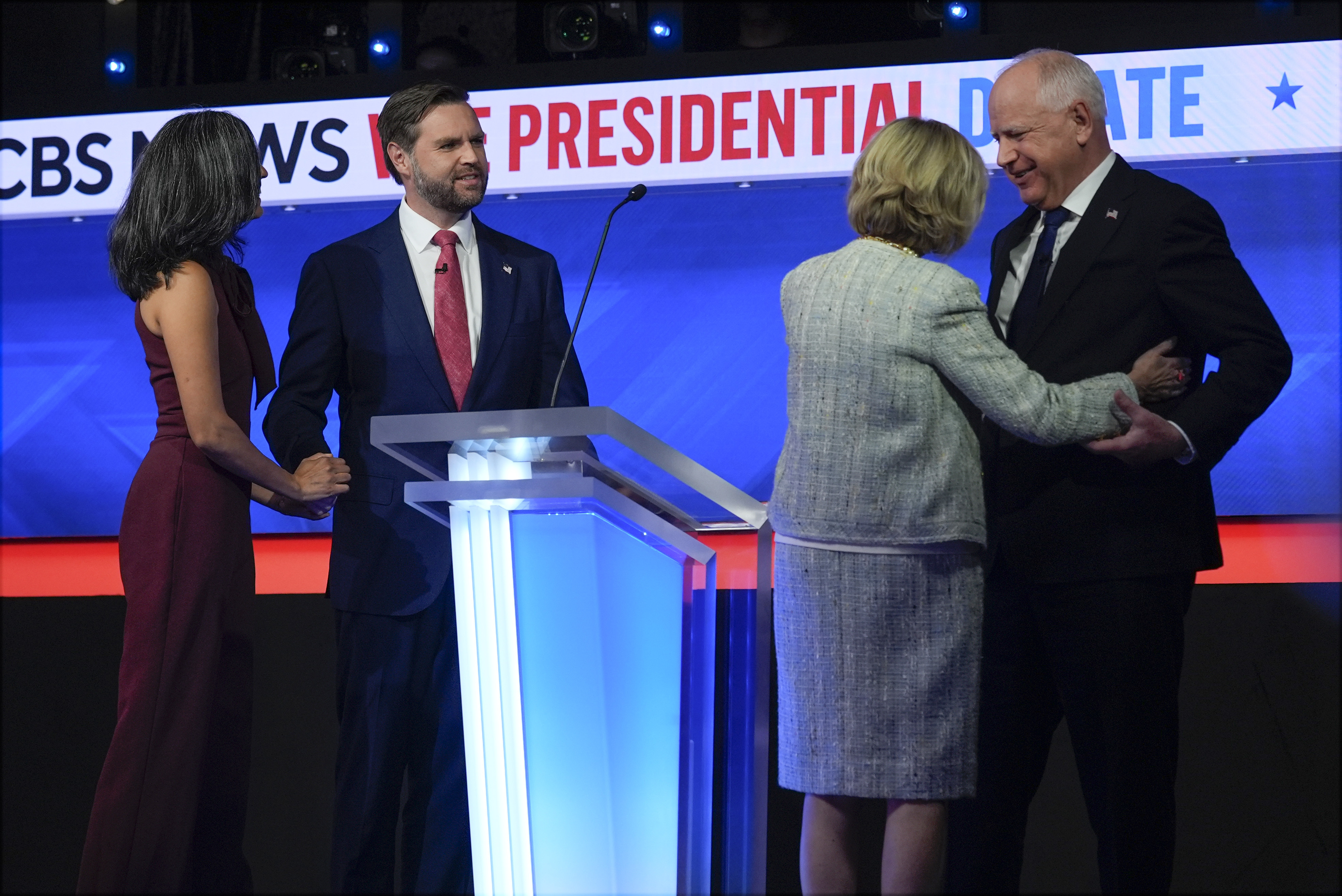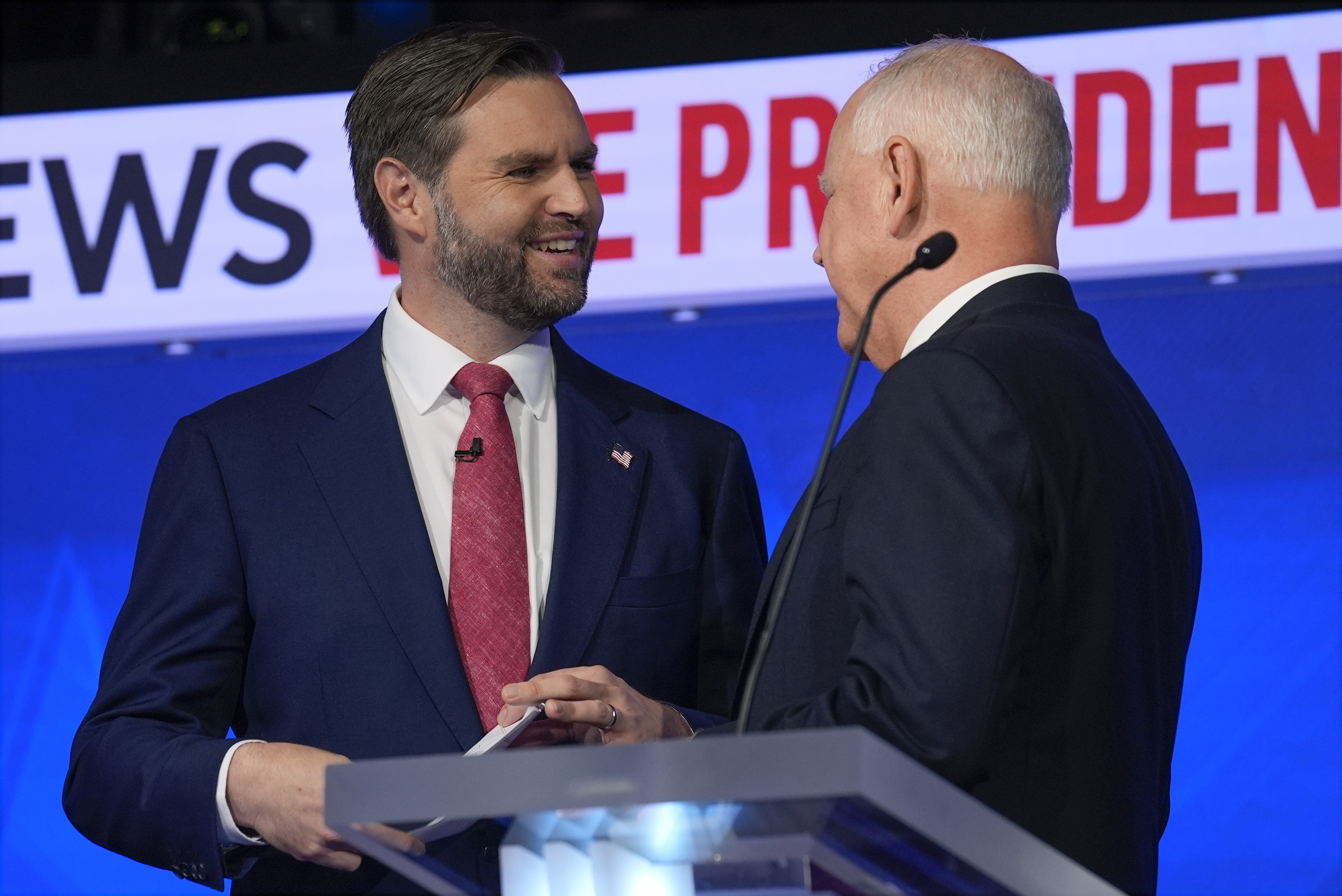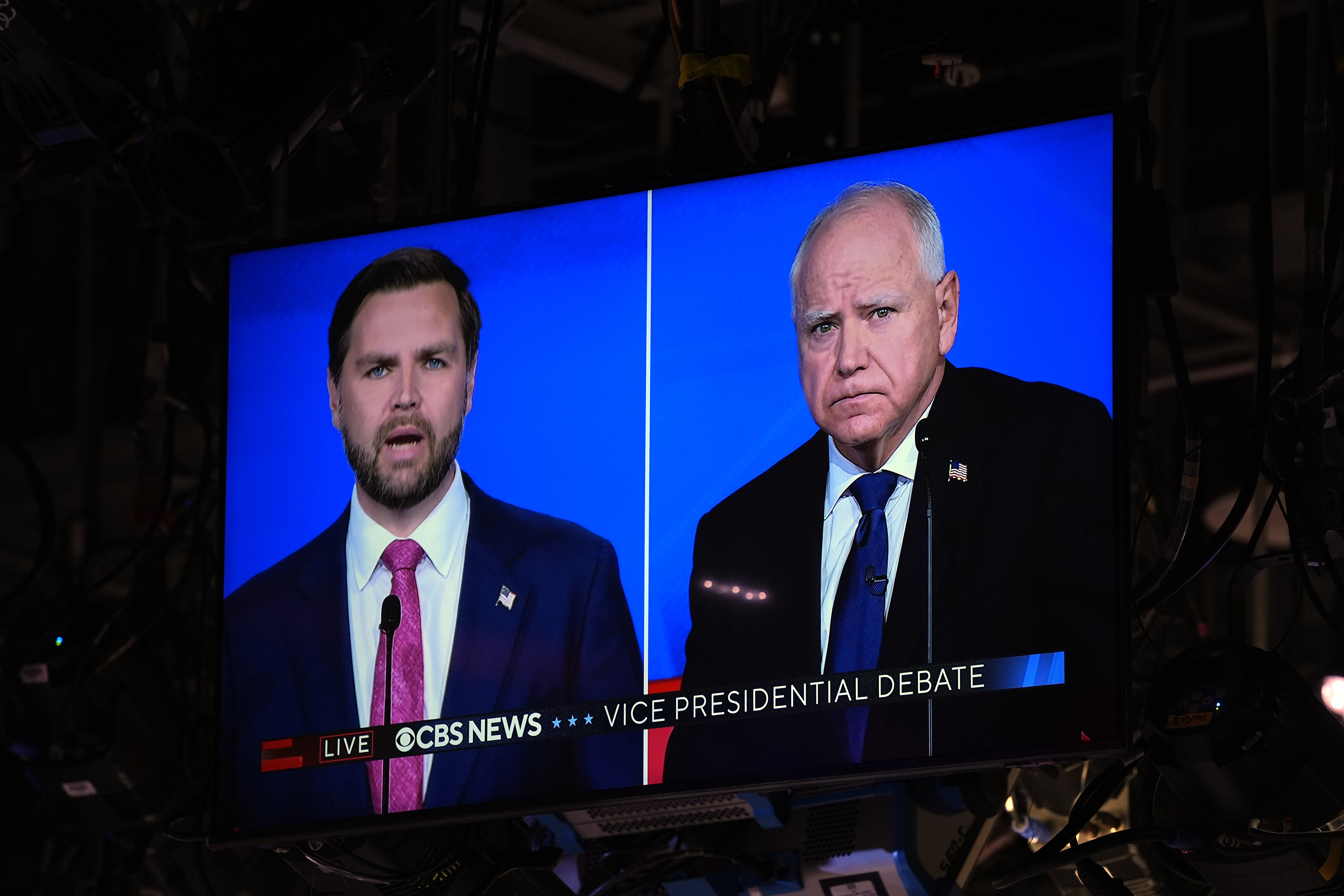Walz: Trump leadership brought Iran ‘closer to a nuclear weapon’
- JD Vance and Tim Walz debated each other for the first time
- Iran missile barrage on Israel ‘appears to have been defeated’
- Israel recently launched a ground campaign in Lebanon
(NewsNation) — In the first debate between the vice presidential candidates, Sen. JD Vance and Gov. Tim Walz contrasted how former President Donald Trump and Vice President Kamala Harris would lead the country through foreign policy, particularly in the Middle East.
Iran launched at least 180 missiles into Israel on Tuesday, the latest in a series of escalating attacks in a yearslong conflict between Israel and Iran and its Arab allies that threatens to push the Middle East closer toward a region-wide war.
When asked about supporting a preemptive strike by Israel on Iran, Walz stressed the importance of steady leadership in handling the situation in the Middle East.
He criticized Trump’s approach to foreign policy, citing concerns raised by Trump’s former staff members about his fitness for office.
Walz praised Harris for her “steady leadership” and “calmness” in building and maintaining international coalitions.
Vance, on the other hand, defended Trump’s foreign policy record. He argued that Trump “delivered stability in the world” through “effective deterrence.”
Vance criticized the Biden-Harris administration’s policies towards Iran, claiming that unfrozen assets provided to Iran have been used to fund weapons potentially threatening the US and its allies.
Regarding a preemptive strike, Vance said, “It is up to Israel … we should support allies wherever they are.”
The candidates also clashed over the Iran nuclear deal.
Walz accused Trump of making Iran “closer to a nuclear weapon” by withdrawing from the agreement without an alternative plan.
Vance countered by pointing out that Iran is currently closer to developing a nuclear weapon than ever before, despite the current administration’s policies.
Walz highlighted coalition-building and diplomatic steadiness, while Vance stressed the importance of projecting strength and deterrence on the world stage.
What to know about the Israel-Iran attacks and Biden’s response
The Biden administration is closely monitoring missile attacks launched by Iran into Israel, but while the White House says it fully supports Israel’s right to defense, it may not be on the same page when it comes to offensive use of force.
Both President Joe Biden and Harris have been in the situation room watching the attack and said the military has been ordered to assist in shooting down missiles.
Biden said that the attack “appears to have been defeated and ineffective” and that the U.S. is “fully fully fully supportive of Israel.”
Before Iran’s attack, Israel had landed a series of devastating blows in recent weeks against the leadership of Hezbollah in Lebanon. It then ratcheted up the pressure on the Iran-backed militant group — which has been firing rockets into Israel since the war in Gaza began — by launching what it said is a limited ground incursion in southern Lebanon.
Israel has said it will continue to strike Hezbollah until it is safe for citizens displaced from homes near the Lebanon border to return. Hezbollah has vowed to keep firing rockets into Israel until there is a cease-fire in Gaza with Hamas, which is also supported by Iran.
Republican leaders on Capitol Hill are calling on Biden to get tougher on Iran in the wake of Tuesday’s attack, urging the administration to adopt a series of specific measures designed to cripple the military powers of Tehran and its proxies.
The Biden administration has given Israel weapons, billions of dollars and 2,000-pound bombs used to take out some of Hezbollah’s leaders, but the Trump-Vance ticket has consistently criticized Kamala Harris’ handling of the situation, claiming she “hates Israel.”
Israel and Iran have fought a shadow war for years, but rarely have they come into direct conflict.
NewsNation’s Safia Samee Ali, The Hill and The Associated Press contributed to this report.


